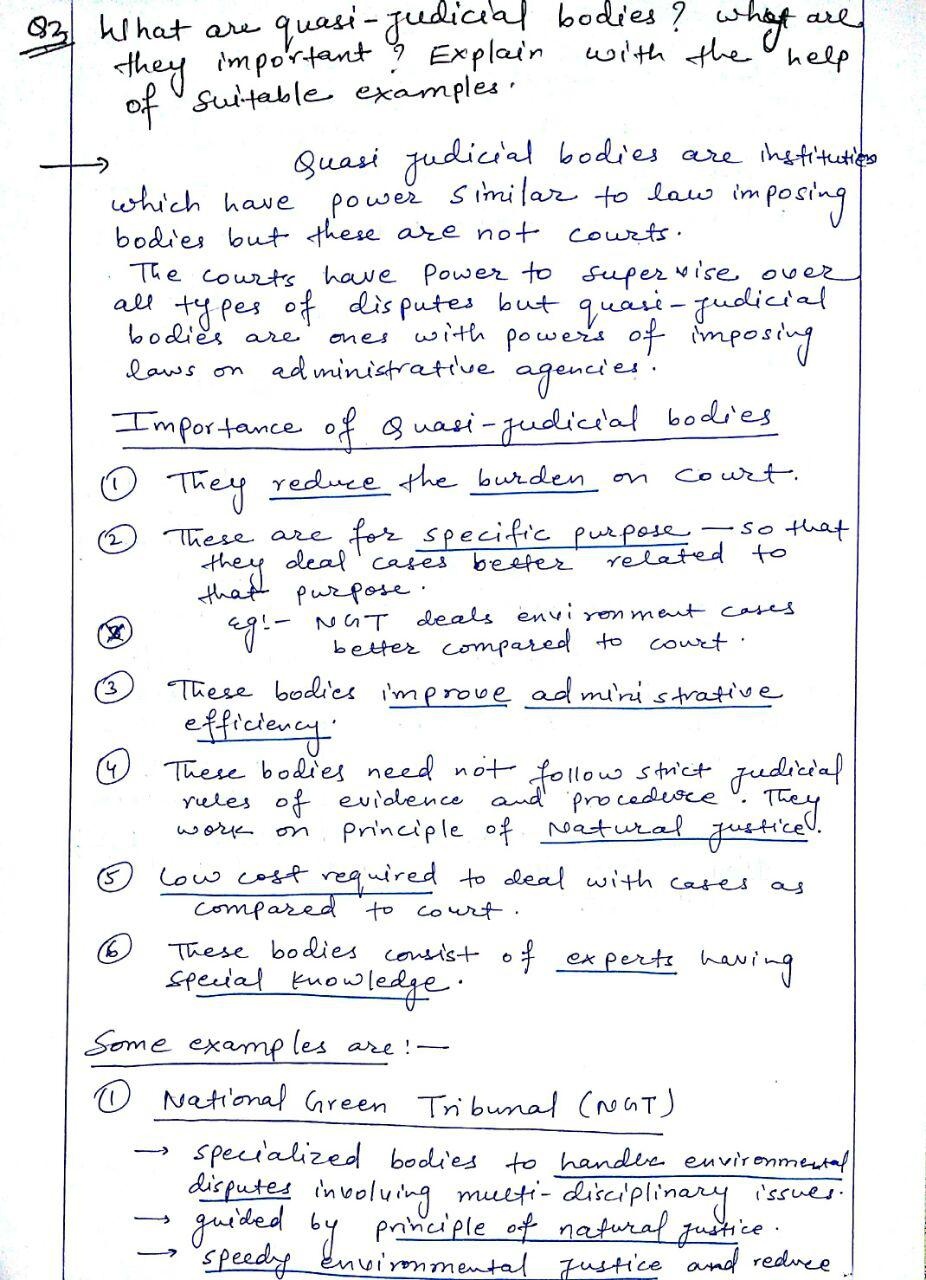
Difference Between Judicial And Quasi Judicial Functions. The purpose of a quasi-judicial hearing is to make a decision or a recommendation to a Governing Body. The court is the real forum of judicial proceedings. A quasi-judicial authority has some of the trappings of a court but not all of them yet there is an obligation to act judicially. These bodies help in reducing the burden of the courts.

Court fee is not required to be paid. The judicial and quasi-judicial acts differ from each other as the judicial acts require a proper proceeding of the court and the judge is duty-bound whereas the quasi-judicial acts dont require the courts and decisions taken under them are by the person who is not a judge. The evidence is not taken on oath. A lis inter parties is not an essential characteristic feature of quasi-judicial function. The concept of a quasi-judicial act has been conceived and developed by English Judges with a view to keep the administrative tribunals and authorities within bounds. These bodies help in reducing the burden of the courts.
The act of a revenue officer sitting in a revenue court although not a judge is a judicial act.
Quasi-judicial activity is limited to the issues that concern the particular administrative agency. 1952 1 All ER480 brought out the distinction between judicial and administrative acts very vividly in the following passage. The place of 4 is in fact taken by administrative action the character of which is. A lis inter parties is not an essential characteristic feature of quasi-judicial function. Parker J in R. Are not strictly followed.